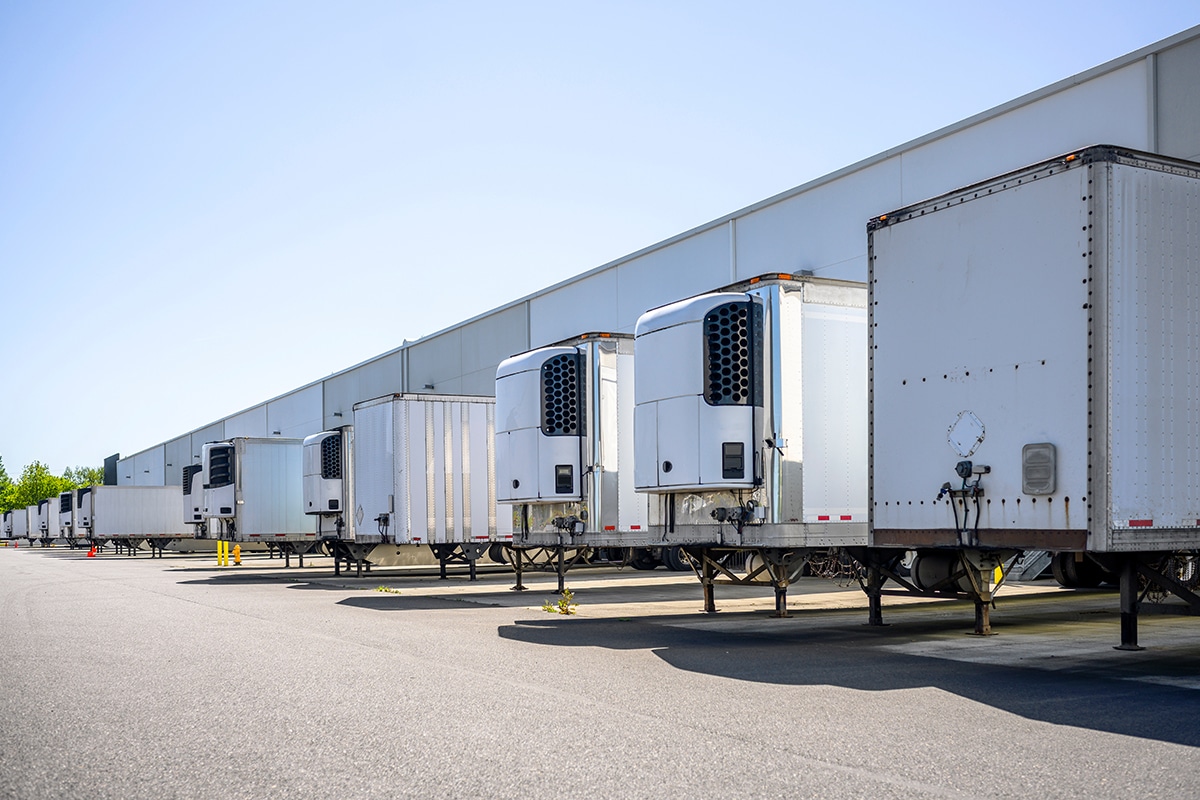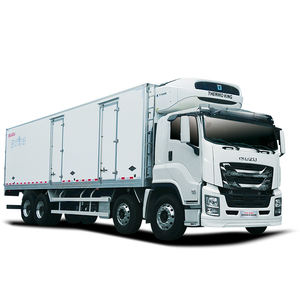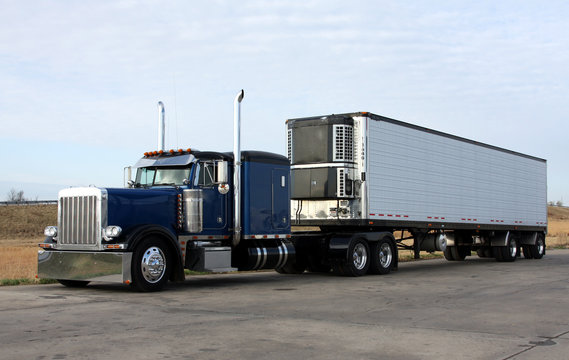Leading Technologies in Transportation Refrigeration: Enhancing Efficiency and Safety And Security
The landscape of transport refrigeration is undergoing considerable change, driven by developments intended at improving both efficiency and safety and security. As these developments continue to evolve, it is essential to discover their effects on functional techniques and governing compliance, motivating a closer exam of how they reshape the future of transportation refrigeration.
Smart Temperature Checking Systems
In the world of transportation refrigeration, wise temperature level tracking systems have actually become an essential development for making certain the integrity of temperature-sensitive products. These innovative systems take advantage of Web of Points (IoT) technology to offer real-time information on temperature level fluctuations, allowing drivers to maintain ideal problems throughout the supply chain. By continually tracking the temperature of cooled containers and vehicles, business can quickly determine variances that might jeopardize product high quality.

In addition, wise monitoring systems commonly incorporate automated signals and notifications, allowing stakeholders to respond without delay to any possible concerns. This proactive strategy not only reduces the threat of putridity however additionally enhances compliance with governing requirements governing food security and pharmaceutical transport.
The combination of information analytics within these systems likewise facilitates anticipating upkeep, assisting operators to predict prospective equipment failings before they take place. This ability decreases downtime and maximizes operational effectiveness, inevitably resulting in set you back savings.
Eco-Friendly Refrigerants
Smart temperature monitoring systems play a crucial duty in keeping item high quality, yet the efficiency of transportation refrigeration likewise rests on the selection of refrigerants used. As ecological problems increase, the shift in the direction of green refrigerants has ended up being critical. Typical refrigerants, such as hydrofluorocarbons (HFCs), are notorious for their high Global Warming Potential (GWP), adding dramatically to climate adjustment. On the other hand, arising options like hydrocarbon-based refrigerants and hydrofluoroolefins (HFOs) existing lower GWP alternatives, supplying both effectiveness and sustainability.
These environment-friendly cooling agents not just decrease ecological impact but also align with worldwide laws targeted at terminating dangerous materials. Their fostering can bring about enhanced energy effectiveness, inevitably decreasing operating prices for transport refrigeration systems. In addition, the use of all-natural refrigerants, such as ammonia and carbon dioxide, has actually gained traction due to their excellent thermodynamic properties and reduced ecological impact.
Buying environmentally friendly refrigerants is not simply a regulative conformity procedure; it stands for a calculated choice that improves brand name credibility and fosters customer commitment. refrigerated transportation thermo king. By focusing on lasting practices, business can add to a greener future while ensuring the honesty of moved items
Advanced Insulation Products
Using advanced insulation products is crucial for maximizing transportation refrigeration systems, as they dramatically improve energy effectiveness and maintain regular temperature control. Typical insulation techniques frequently drop short in protecting against thermal transfer, resulting in boosted energy consumption and varying temperature levels within refrigerated areas.
Emerging products such as vacuum cleaner protected panels (VIPs) and aerogels provide premium thermal resistance, enabling thinner accounts without compromising efficiency. VIPs, for circumstances, utilize a vacuum layer to decrease convective and conductive warmth transfer, making them optimal for space-constrained applications. Aerogels, recognized for their porous and light-weight structure, offer exceptional insulation while substantially lowering total system weight.
In addition, incorporating phase modification products (PCMs) right into insulation systems can further stabilize temperatures throughout transportation. These products soak up and launch thermal power, efficiently buffering versus exterior temperature level variants.
The integration of these Read More Here sophisticated insulation products not just lowers the functional prices connected with power intake yet additionally expands the rack life of temperature-sensitive items. As the transport refrigeration industry remains to progress, the adoption of innovative insulation innovations will certainly be crucial in boosting both performance and safety and security in chilled transport.
Automated Course Optimization
The performance of transportation refrigeration systems is substantially boosted via automated path optimization, which leverages advanced algorithms and real-time information to identify the most effective courses for delivery. By assessing numerous elements such as traffic patterns, climate condition, and shipment windows, these systems can dramatically minimize traveling time and fuel consumption.
Automated route optimization lessens human mistake and subjective decision-making, you can check here which can cause inadequacies. This modern technology enables fleet supervisors to allocate resources a lot more effectively, guaranteeing that chilled goods maintain their required temperature throughout the journey. By maximizing routes, business can also boost consumer fulfillment with timely distributions.
Moreover, automated systems can adapt to unexpected conditions, such as roadway closures or abrupt traffic spikes, permitting for dynamic rerouting. This adaptability not just shields the integrity of temperature-sensitive items yet additionally contributes to general functional effectiveness.
Carrying out automated course optimization can cause significant price financial savings while reducing the carbon footprint related to transport. As businesses significantly focus on sustainability, this advancement stands apart as an essential component in contemporary transport refrigeration, aligning operational objectives with ecological responsibility. Inevitably, automated path optimization stands for a considerable improvement in the pursuit for performance and security in transportation refrigeration.

Real-Time Data Analytics
Automated route optimization substantially take advantage of the combination of real-time data analytics, which gives crucial insights into the performance of transportation refrigeration systems. By using real-time information, transportation drivers can monitor temperature level fluctuations and tools efficiency, guaranteeing that perishable products are kept within needed specifications throughout transit. This proactive method not just enhances the quality of the transported products but additionally mitigates the risk of wasting and loss.

In enhancement to boosting effectiveness, real-time analytics enhances safety by making certain conformity with regulatory criteria for temperature level control. This not just secures public health but also strengthens a firm's reputation - thermo king transport refrigeration. As the transport refrigeration industry evolves, the assimilation of real-time information analytics becomes a keystone for driving innovation, sustainability, and operational quality
Final Thought
In verdict, the improvements in transport refrigeration significantly enhance both effectiveness and safety within the market. Collectively, these developments represent a critical evolution in transportation refrigeration, making sure conformity with regulative standards and promoting a greener future.
The landscape of transportation refrigeration is undertaking substantial makeover, driven by developments intended at enhancing both performance and safety.Smart temperature level tracking systems play an important function in preserving item top quality, however the performance of transportation refrigeration likewise pivots on the selection of refrigerants used. Their adoption can lead to improved energy efficiency, eventually decreasing operating costs for transportation refrigeration systems. Ultimately, automated route optimization stands for a substantial advancement in the quest for performance and safety and security in transportation refrigeration.
In conclusion, the improvements in transportation refrigeration dramatically enhance both efficiency and security within the industry.